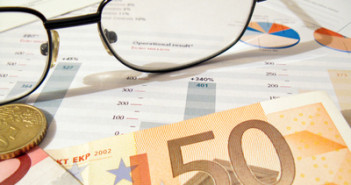The euro continues to trade at high levels, as EUR/USD remains above the 1.37 on Friday, The euro managed to shrug off weak data out of the Eurozone on Thursday, as PMIs did not impress and inflation indicators posted declines. In the US, Unemployment Claims and Core CPI met expectations, but the Philly Fed Manufacturing Index slumped to a nine-month low. Friday is quiet on the release front, with the markets keeping a close eye on US Existing Home Sales. There are no Eurozone events on the schedule.
Here is a quick update on the technical situation, indicators, and market sentiment that moves euro/dollar.
EUR/USD Technical
- EUR/USD has been rangebound in the Asian and European sessions, trading slightly above the 1.37 line.
Current range: 1.37 to 1.38
Further levels in both directions:Â Â 
- Below: 1.37, 1.3650, 1.3580, 1.3515, 1.3450, 1.34, 1.3320, 1.3295, 1.3175, 1.31 and 1.3050.
- Above: 1.38, 13915 and 1.40.
- On the downside, 1.37Â is under pressure. 1.3580 is stronger.
- 1.38 is the next resistance line.
EUR/USD Fundamentals
- 15:00 US Existing Home Sales. Exp. 4.73M.
- 18:45 FOMC Member Richard Fisher Speaks.
*All times are GMT
For more events and lines, see the Euro to dollar forecast.
EUR/USD Sentiment
- Mixed numbers out of the US: Unemployment Claims dropped slightly last week, coming in at 336 thousand. This was just shy of the estimate of 335 thousand. After some recent weak releases on the employment front, the markets will be pleased with this release. Meanwhile, inflation indicators continue to raise concerns, as Core CPI posted a paltry gain of 0.1% for the second straight month. Weak inflation levels are indicative of weak economic growth and could spell trouble for the US recovery. On the manufacturing front, the Philly Fed Manufacturing Index slumped badly, posting a decline of -6.3 points, compared to +9.4 points a month earlier. This marked the first reading below the zero level since January 2013. US numbers have not looked strong of late, and this has helped the euro hold its ground above the 1.37 level.
- Fed may adjust forward guidance: This week’s Federal Reserve minutes indicated that interest rates are unlikely to rise, even if unemployment drops to 6.5%. Previously, the Fed had said it would consider raising rates at the 6.5% threshold, but with unemployment falling faster than expected, Fed policymakers agreed that it would “soon be appropriate†to revise the Fed’s forward guidance regarding interest rate levels. The minutes also indicated that the Fed will likely continue trimming QE, barring any downturns in the economy.
- Euro PMIs disappoint: PMIs out of the Eurozone were mostly weak in January. French Service and Manufacturing PMIs remain in contraction mode, while the Eurozone numbers fell short of their estimates. French Service and Manufacturing PMIs remain in contraction mode, while the Eurozone numbers fell short of their estimates. These weak figures from the Eurozone’s two largest economies do not bode well for the Eurozone and the euro responded with modest losses.
- Economic Sentiment releases disappoint: Confidence in the outlooks for the German and Eurozone economies weakened in January. German ZEW Economic Sentiment slid to a three-month low, dropping to 55.7 points in January, compared to 61.7 a month earlier. The estimate stood at 61.3. The Eurozone reading followed suit, dropping from 73.3 to 68.5 points, way off the estimate of 73.9. Although these levels are relatively high, the fact that institutional investors and analysts are less optimistic is a reason for concern, and a slowing down of the German locomotive is the last thing the troubled Eurozone needs.
- ECB official hints at negative rates: The head of the Eurogroup, Dutch finance minister Joeren Dijsselbloem, said that that some say the value is too strong. His words join an ECB member that stated that the central bank is considering negative rates very seriously. These words weighed on the euro, which has since recovered. In addition, the Bank’s monthly bulletin cut inflation forecasts from 1.5% to 1.1% in 2014. ECB President Draghi seemed confident that things will sort themselves out, but another fall in inflation could still trigger a move in March.
More:Â another fall in inflation could still trigger a move in March



